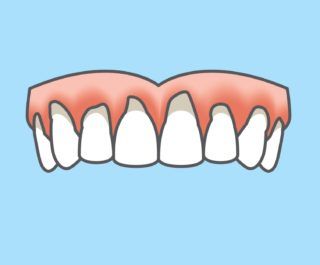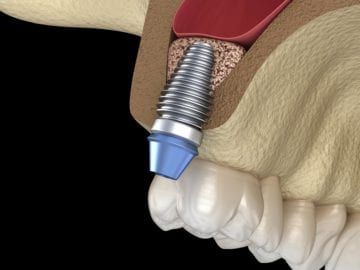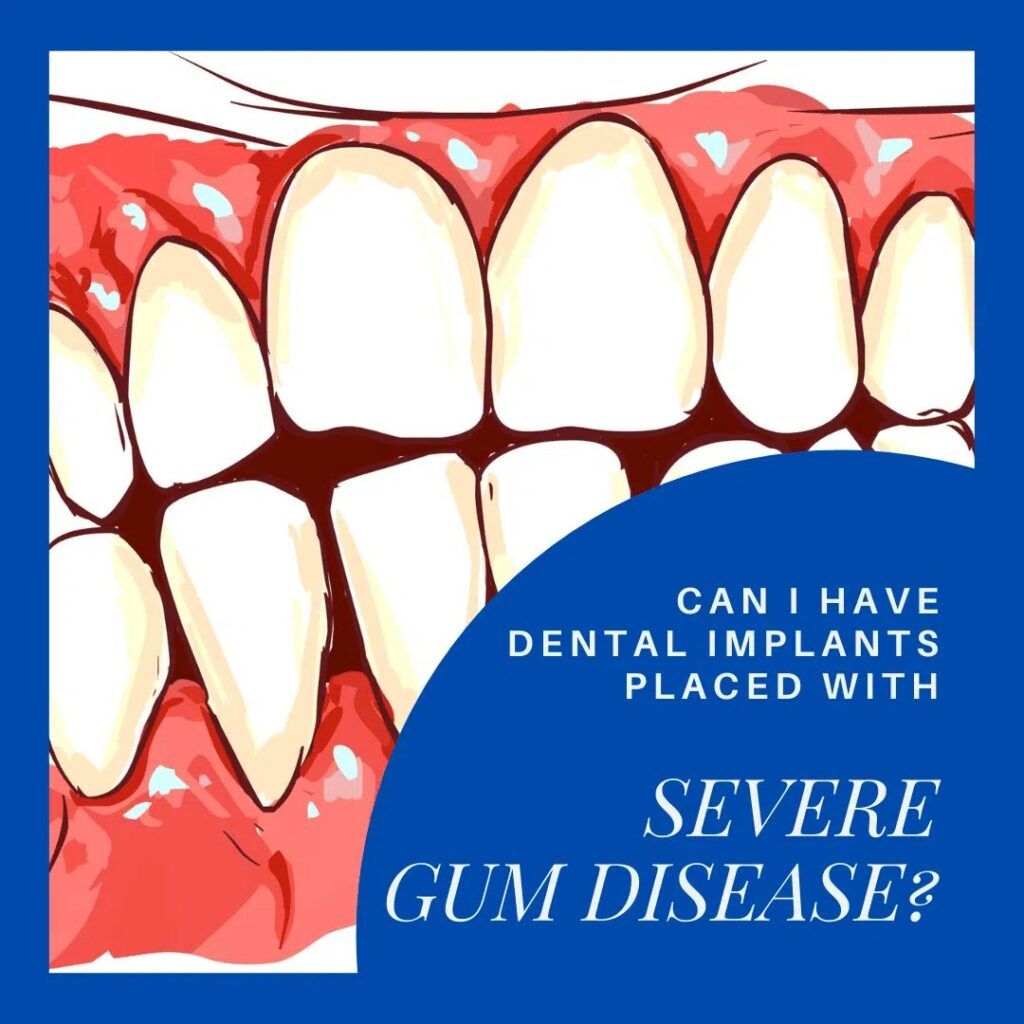If you are looking into getting dental implants, then you have probably heard that ideal candidates for dental implant surgery are those who have one or more missing teeth, generally good oral health, and adequate bone mass to safely support an implant. While these things make up the “ideal” candidate for dental implant placement, what about candidates who are not ideal? Is anyone who does not fit the parameters of an ideal candidate automatically excluded from dental implant surgery?

Ultimately, only your implant dentist can answer these questions by evaluating your overall health, teeth, gums, and dental x-rays. However, there is one common oral health concern that often makes our clients wonder whether they should even try to see if dental implants are a possibility to them. This concern is also the leading cause of tooth loss in adults due to alveolar bone deterioration.
Periodontitis is a severe form of gum disease that can complicate the placement of dental implants because of the deterioration it causes to the jawbone and gum tissue. While these factors can affect the placement of dental implants, the presence of periodontitis does not always immediately exclude an individual from getting dental implants. In fact, an article published in 2008 titled Implant treatment in periodontitis-susceptible patients: a systematic review found that the survival rate of dental implants in patients with periodontitis versus those without is not that different. This suggests that dental implants can successfully be placed in patients with severe gum disease.
However, there are cases where the bone loss caused by periodontitis has left little bone for the placement of traditional dental implants. In these cases, an implant dentist may recommend zygomatic implants. Zygomatic implants are a special type of dental implant that uses the zygomatic (cheek) bones for stabilization instead of the jawbone. Unlike the alveolar (jaw) bone, the zygomatic bones do not deteriorate with severe periodontitis. Since zygomatic implants bypass the jawbone and are implanted into the cheekbone, they provide an ideal alternative for those with severe periodontitis looking to get dental implants.

In fact, a recent study published in the US National Library of Medicine database found that zygomatic implants could successfully be placed in patients with periodontitis. The study, titled Full mouth rehabilitation with zygomatic implants in patients with generalized aggressive periodontitis: 2 year follow-up of two cases, evaluated the long term success of zygomatic implants in patients with severe periodontitis and found that the implants were successful. Not only were the implants found to be successful after two years, but zygomatic implants also allowed for immediate load bearing following surgery, even in patients with severe gum disease.
Although the study found that zygomatic implants were successful, it did also note that there was gum inflammation noted during follow-up. This biological complication is not surprising in patients with severe gum disease, nevertheless it suggests the need for periodontal disease management after having zygomatic implants placed. In fact, the study found that gum inflammation responded positively to oral hygiene and maintenance treatment. This ultimately shows that zygomatic implants are an ideal choice for patients with severe gum disease.

